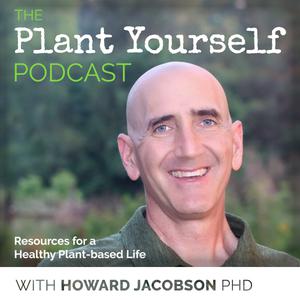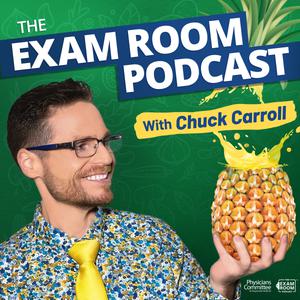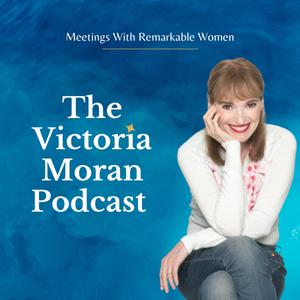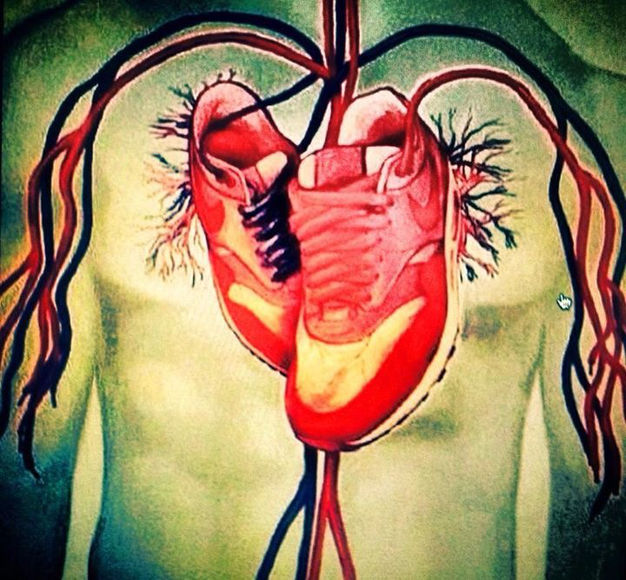
Plant Yourself - Embracing a Plant-based Lifestyle
Howard Jacobson, PhD
Plant-based inspiration, guidance, and support for a joyful and vibrant life
- 1 hour 3 minutesHow Do You Walk Through Life?: Michael Gelb on PYP 614
Michael Gelb returns to the podcast to talk about his latest book, Walking Well, co-written with Bruce Fertman.
In our conversation, we cover a wide range of topics:
- the biomechanics of walking
- how we can powerfully improve the experience of walking through simple mindfulness and imagination exercises
- why walking is the quintessential human activity
- the benefits of walking (physical, cognitive, emotional, spiritual)
- other basic human postures (standing, sitting, lying down)
- materialist vs spiritual orientation to life
- and much more...
Michael makes the case that walking, if done well, is kind of a magic Swiss army knife for life. It can give us the same benefits as meditation, strenuous exercise, yoga, breathwork, and many other "advanced" modalities.
From the eminently practical (you'll learn three exercises that will have you walking better in minutes) to the deeply philosophical, this is a conversation (and book) that you won't want to miss.
Links
22 January 2025, 8:40 am - 53 minutes 16 secondsHealing Trauma with Compassion and Imagination: Yael Zivan on PYP 613
I've been on a memory reconsolidation mission since I was first introduced to it a couple of years ago.
Two missions, in fact.
One, to learn as much as I can and incorporate it into my coaching and mentoring.
Two, to share it far and wide.
Today, we're going to talk about memory reconsolidation and some of the techniques that you can use to help bring it about for yourself and for others. My guest is my daughter Yael Zivan who has been studying memory reconsolidation and experiential therapies with some of the luminaries in the field that we talk about in this episode.
I'm so happy and delighted that she is carrying on this mission in her way, bringing healing and support and compassion and love to people thanks to this recent neuroscience breakthrough, that shows us how to shortcut transformation and make it effortless and permanent.
In our conversation, we dive deep into therapeutic modalities and memory reconsolidation.
Yael shares her journey in transforming her own trauma into a passion and career, exploring techniques such as AEDP and Coherence Therapy.
We talk about the importance of self-compassion, understanding schemas, and innovative approaches to healing triggers and old patterns.
17 December 2024, 5:57 am - 1 hour 4 minutesHealth Fundamentals for Humans: Lucas Rockwood on PYP 612
Well, it's getting to be that time of life when I begin to realize that I'm mortal. Next year I turn 60, which, according to the Jewish blessing "May you live to a hundred and twenty," puts me smack dab in middle age.
I've been whole food plant-based for decades, and I'm pretty athletic. I meditate, and I keep a journal just in case I ever get the urge to write in it. I drink water, avoid tobacco products, drink about a quart of alcohol a year, and wear a bike helmet.
So you'd think that I'd be going into the second half of life all guns a-blazing, ready to tackle any and all challenges.
But you'd be wrong.
The area where I'm weakest is flexibility.
I'm working harder and harder to put my socks on. When I'm playing Ultimate or Padel, I have trouble bending down to catch a disc or return a ball.
I'm worried about turning into a caricature of an old man: shuffling around, complaining about the weather and my rheumatism.
I decided to do something about it.
Maybe I even mentioned this to my wife, because in no time my Facebook feed was swollen with ads for online stretching programs.
One caught my eye, because the presenter seemed real and down-to-earth. So I bought a "Science of Stretching" course from Lucas Rockwood, founder of YogaBody.
Then I realized that I knew Lucas.
In fact, he'd hosted me on his Age Less / Live More Podcast way back in March, 2014, where I talked about my goal of turning the world into a giant food forest. (Ah, permaculture :).
We'd first met, in fact, about 8 years before that, when we were both learning the ins and outs of digital marketing.
And one thing that caught my eye was that Lucas had settled in Barcelona, less than 30 km from where I live. So I reached out, and he graciously agreed to be a guest on Plant Yourself. I shlepped my recording equipment into the city, and we met at his studio and had a really good conversation.
Mostly we talk about how to maintain healthspan, particularly in the second half of life.
Lucas shares lots of valuable insights:
- how our athleticism might evolve as we age
- the balance between training and injury prevention
- how to get the benefits of yoga if someone (ahem) isn't crazy about actually doing yoga
- the power of intentional breath practices for regulating the nervous system
- the science of flexibility training (and why it's more or less unknown in most gyms)
Lucas gives us the three principles of flexibility practice, and shares why most of the stretching we do doesn't actually increase our range of motion.
And he shares three types of breathing and how to apply each one in practice and in daily life.
We also cover some of the problems in the yoga community, including sexual exploitation. As you can see, our "range of conversation" parallels Lucas' own range of motion, and hopefully the one that I'm developing as I continue to deepen my own practice.
If you plan on living a full and vibrant life, and you're approaching A Certain Age, this episode may serve you — as it did me — as a wakeup call.
Links
Lucas' Age Less / Live More Podcast
My appearance on the Age Less / Live More Podcast
Job's Body: A Handbook for Bodywork, by Dean Juhan
3 December 2024, 8:27 am - 54 minutes 15 secondsThe Actual Science of Change: Richard Boyatzis, PhD, on PYP 611
One of the things I love about being an executive coach and organizational consultant is how creative I get to be and how many different things I get to try.
Every year, at least 10 or 20 pretty significant books on related topics get published. They talk about personal performance, about how to get people to change, how to get teams to become more effective, and how to get organizational culture to shift.
Helping clients navigate change is definitely fun, but it can also feel like an infinite candy shop. It's hard to choose a single approach as the right one, and hard to combine a bunch of different approaches into anything resembling a coherent strategy and action plan.
And the truth is, when you look at the field of consulting and coaching, we don't have a great track record.
As in, there's a lot of stuff that people do that seems nice—and just doesn't work.
I remember when I first went back to graduate school for public health. I had this naive idea that anything that had a good message was good. So I thought that DARE—Drug Abuse Resistance Education; the drug education program where police would come into the community and tell kids not to do drugs—was great.
And then I started looking at the research that DARE just didn't work. The kids who went through DARE were using drugs at least as much as kids who'd never been exposed to it.
And then I started looking at abstinence-based sex education and realizing that there were more teen pregnancies there than in communities where kids were taught how to use birth control and how to talk to each other about sexuality and sex.
Stuff that seemed like it was obvious, wasn't.
Those revelatiopns made me realize how badly we need science in the social sciences to inform what we do.
And that is all by way of teeing up today's guest, Dr. Richard Boyatzis, who's written a book called The Science of Change.
It's a guide for changemakers, for practitioners, for scholars, for academics, for community organizers, for honorable politicians, and for activists.
It explores key questions relating to how we bring about change.
What's the recipe? What are the intructions. What are the key elements, and what are the tipping points to pay attention to?
In other words, how do we put it all together and lead change effectively and not just creatively and heartfeltly.
It's not an easy book. But it's for you if you really want to understand how to create change the most micro level—the personal—and in concentric rings outward, to the familial, communal, societal, and national levels.
Links
The Science of Change, by Richard E Boyatzis
Helping People Change, by Richard Boyatzis, Melvin Smith, and Ellen van Oosten
I Heard There Was a Secret Chord, by Daniel Levitin
This is Your Brain on Music, by Daniel Levitin
You Can Change Other People, by Peter Bregman and Dr Howie Jacobson
Outliers, by Malcolm Gladwell
Start with Why, by Simon Sinek
This is What It Sounds Like, by Susan Rogers and Ogi Ogas
19 November 2024, 2:12 pm - 1 hour 15 minutesWe are the Great Turning: Jess Serrante on PYP 610
According to climate activist Joanna Macy, there are three stories that explain the world we're living in.
The first is Business as Usual.
That is, "Don't worry. Everything's fine."
For example: "Global warming? No sweat — we're going to figure out how to suck carbon out of the air. No worries. The capitalist system will figure things out and the people who come up with the best, most valuable ideas will be rewarded. All is good."
Sounds reasonable, especially if you consume mainstream news and listen to experts and pundits promoted and funded by capitalism.
The second is the Great Unraveling.
As in, "We're doomed."
And it can sound like this: "The oceans are dying. Fisheries are collapsing. There's poverty everywhere. The climate is chaotic and dangerous. Everything's on fire or under flood waters. There's oppression and war and degradation, and income inequality is skyrocketing. And it's too late; there's nothing we can do anymore."
Well, I can't argue with any of that. When I read scientific papers on climate science and oceanography, when I talk with farmers — it's hard to feel a big surge of hope about our future.
And then there's a third story: the Great Turning.
The Great Turning says, "Let's build a just and life-sustaining society."
Living into the Great Turning isn't a spectator bet on what will happen, but rather a decision to get onto the field of play to affect the outcome.
And that's what my guest, Jess Serrante, and I, cover in this conversation.
So if you have been in despair and rage, bewilderment, and depression; or if you're thinking, if only we had elected the other folks then everything would be fine — this third story will offer you a way forward.
Links
We Are the Great Turning Podcast
"Wild Geese," by Mary Oliver
15 November 2024, 1:44 pm - 1 hour 23 minutesBrain Health is a Community Effort: Drs Ayesha and Dean Sherzai on PYP 609
Doctors Ayesha and Dean Sherzai founded the Healthy Minds Initiative (HMI) to scale their impact on the tragic epidemic of dementia plaguing the world today.
The first thing that we have to understand is that the majority of dementias are preventable through diet and lifestyle. The Sherzai's acronym NEURO—nutrition, exercise, unwinding, restorative sleep, and optimization—encapsulates the pillars that can determine our cognitive trajectory as we age.
Second, individual behavior change is hard. And it's especially hard when the community norms are unhealthy.
Third, traditionally underserved and marginalized communities are bearing the brunt of the damage and ensuing tragic consequences.
And fourth, circling around, those communities can actually become leaders in the public health crusade against toxic lifestyles, since their empowerment can become the solution.
HMI exists to empower communities to spread both the message and practice of lifestyle medicine. But in order to do that, the Sherzai's and their partners can't come in as experts.
Instead, they approach as curious partners, willing to learn, and willing to stick around and provide support for the long term, and not just until the latest research grant runs out.
In our conversation, we talk about the need for systemic change in research models that prioritize community engagement and sustainability.
And we talk about what sustainable progress looks like, and can look like—in other words, a blueprint for community engagement and empowerment that can create a grassroots, decentralized, democratic health movement.
Links
Nourishing Our Brains and Preventing Dementia with Ayesha Sherzai, MD: PYP 279
The Role of Science in Public Discourse and Racial Justice: Dean and Ayesha Sherzai, MDs: PYP 414
The Alzheimer's Solution, by Drs Ayesha and Dean Sherzai
The 30-Day Alzheimer's Solution: The Definitive Food and Lifestyle Guide to Preventing Cognitive Decline, by Drs Ayesha and Dean Sherzai
12 November 2024, 11:13 am - 1 hour 6 minutesMindfulness, Diversity in Healthcare, and Proceeding with Promise: Lewis Bertus on PYP 608
Lewis Bertus was following medical best practices as a physician's assistant when his wife's illness forced him to take a hard look at the limitations of the healthcare industry.
The drugs weren't helping her type 2 diabetes, no matter how much her doctors insisted that the pharma route was the only responsible one.
So Lewis "did his own research," which can go in all sorts of directions, some of them pretty horrifying.
Fortunately, with his grounding in medicine and his deep spiritual faith, he struck gold.
Once he learned that a whole food, plant-based diet can reverse type 2 diabetes, he devoted himself to spreading the word. And empowering people with the ability to get that diet off the pages of books and the frames of videos into their kitchens, onto their forks, and into their mouths.
In our conversation, we talk about his work as a health coach specializing in diabetes reversal.
We look at various barriers to change: cultural, biochemical, and habitual.
We dive into the primacy of mindfulness as a tool for managing cravings and reducing stress.
We explore the intersection of mindfulness and spiritual practices, and how the "STOP" process can tap into religious beliefs in the service of health.
We also talk about the challenges of addressing health disparities in historically marginalized communities, and the urgent need for diversity in healthcare — patients can see healthcare professionals who "look like them" and have credibility talking about their lives.
Enjoy!
Links
5 November 2024, 10:52 am - 1 hour 10 minutesWhat Lights You Up?: Mary Olson-Menzel on PYP 607
If What Lights You Up were simply an extremely practical guide to job hunting, I wouldn't have been interested in a conversation with the author, Mary Olson-Menzel.
Not that job hunting isn't an important topic — it clearly is, especially if you're out of a job or in one that's making you miserable.
It's just that I wouldn't be interested in having that convo, and so I'd skip it.
That said, What Lights You Up is in fact an extremely practical guide to job hunting.
What piqued my interest was the idea that our careers can be powered by joy, self-expression, and contribution rather than opportunism, random chance, or calculated self-interest.
What if we lived in a world where people were allowed — hell, encouraged — to break free from unfulfilling work and discover their passions? What might change if that were an unalienable right?
But this conversation isn't just about an inspiring thought. It's also an extremely practical guide to job hunting (have I already mentioned that?) that's powered by the principle that you can use work as a means to growing your best self and giving that self to the world.
We talk about a tool to help you figure out what lights you up: the "Light Log."
Mary shares with me a new (for me) way of networking, with intention and authenticity.
She also offers some exercises for job-seekers, and coaches me through the 3 P's of job searching (which are also the 3 P's of prospecting, so I was taking notes!).
If you want to make a difference while making a living, this conversation is for you.
Links
29 October 2024, 1:12 pm - 1 hour 47 secondsMom for Mayor: The Kind of Crazy That Can Change the World: Momma Kai on PYP 606
Just because homelessness is a complex problem doesn't mean that there aren't simple solutions.
The obstacles to ending homelessness stem from the "address homelessness" industry itself, which benefits from the persistence of the problem rather than its eradication.
What's needed, according to today's guest, Momma Kai Sanders, is affordable housing.
That's the root of the issue: homes that people can afford to live in.
And Momma Kai isn't just talking about it. She's taking action — running for mayor of Raleigh, North Carolina, on a write-in ticket.
She's running for her son, Wisdom, to create the policies now that can give him a chance at a good life in the future.
She's fighting for the most vulnerable and marginalized from a position not just of solidarity, but identity.
She's all about compassion and authentic leadership.
If you can vote for her, I hope you do so.
If you know folks who live in Raleigh who can spread the word, I hope you reach out to them.
It's a long shot, sure, but the most important question isn't "Who's going to win?" Instead, it's "Whose team do you want to be on?"
Links
Helping the Unhoused – and Homeless – Move From Poverty to Prosperity: Momma Kai Sanders on PYP 562
True Privilege is Growing Up in a Low-Trauma Environment: Momma Kai Sanders on PYP 566
24 October 2024, 12:38 pm - 1 hour 18 minutesProductivity, Purpose, and Peace of Mind: Tom Solid and Paco Cantero on PYP 605
Tom Solid and Paco Cantero are the minds behind the Paperless Movement, a consultancy and educational program for people who aspire to high performance in a fast-changing digital landscape.
Which is to say, they're here to help us get shit done in a world of infinite bits and bytes, a world of 24/7 access to information, and a world which will grab our calendar by the short and curlies and impose a zillion external agendas upon us if we don't learn how to defend our time, our priorities, and our purpose.
Rather than focus on the latest and greatest individual tools (the "it girls" of the productivity world), Tom and Paco emphasize the need to understand systems, and use tools for particular purposes to achieve desired results.
We dive into their ICOR framework, and encounter such things as the Capturing Beast, the Single Source of Truth, and the pitfalls of using the internet as a "Second Brain."
We also explore the difference between Deep and Shallow work, and why it's crucial to be deliberate in building time and space for the former.
Here are the key takeaways, according to AI:
- Productivity is about performing at your best without burning out.
- Understanding that everything is a system can enhance productivity.
- Busy professionals can be productive if they have clarity in their tasks.
- Switching tools frequently can lead to confusion and inefficiency.
- A structured approach to productivity is essential for busy professionals.
- Continuous improvement happens naturally when systems are in place.
- Clarity in goals and tasks leads to better tool usage.
- It's not the tools that matter, but how you use them.
- A combination of small changes can lead to significant improvements.
Ultimately, productivity is simply a means to achieve What Matters Most to us.
Joyfully.
With peace of mind.
And on purpose.
Links
ICOR® Journey: Learn how to build your ultimate productivity system with any tools!
22 October 2024, 8:48 am - 1 hour 16 minutesMeditation in Three Minutes a Day?: Richard Dixey on PYP 604
In the movie There's Something About Mary, there's a scene where Ben Stiller's character picks up a hitchhiker who tries to pitch him on a business idea.
There's a popular exercise video called Eight Minute Abs, but the hitchhiker is going to capture market share by making a video called Seven Minute Abs.
He explains, "If you walk into the video store and you see Eight Minute Abs and Seven Minute Abs, which one are you going to take? Seven minutes, of course.
But he gets stumped by the question, "What if somebody else comes out with Six Minute Abs?"
I thought of that scene when I got pitched for a new book called Three Minutes a Day: A Fourteen-Week Course to Learn Meditation and Transform Your Life, by Richard Dixey.
I thought, boy, have we really dumbed down the tradition of meditation from its origins.
Starting with Buddha sitting under the tree for days or weeks at a time until enlightenment descended upon him, to the practices of of monks and nuns of the monastic orders in Europe who would sit and pray for several hours a day.
And now, just like everything else in the West, we've turned it into something that you can package and microwave and sell to the masses who just want a quick fix.
Then I took a look at the book and completely changed my mind.
And in fact, the conversation you're about to hear with Richard Dixey, the author, is actually one of the deepest explorations of spirituality I have ever had. It's changed how I think about my own spiritual practice. And it's been a couple of weeks now of going through the exercises in the book, and my spiritual practice has transformed for the better.
I understand if you're skeptical. So have a listen, and let me know what you think.
- A Mantis Carol, by Laurens van der Post
- A Story Like the Wind, by Laurens van der Post
- Three Minutes a Day: A Fourteen-Week Course to Learn Meditation and Transform Your Life, by Richard Dixey
- Yet Being Someone Other, by Laurens van der Post
- Dharma College
- RichardDixey.com
15 October 2024, 7:23 am - More Episodes? Get the App
Your feedback is valuable to us. Should you encounter any bugs, glitches, lack of functionality or other problems, please email us on [email protected] or join Moon.FM Telegram Group where you can talk directly to the dev team who are happy to answer any queries.
 Healthy Human Revolution
Healthy Human Revolution
 The Exam Room by the Physicians Committee
The Exam Room by the Physicians Committee
 The Victoria Moran Podcast: Meetings With Remarkable Women
The Victoria Moran Podcast: Meetings With Remarkable Women
 Jami Dulaney MD Plant Based Wellness
Jami Dulaney MD Plant Based Wellness